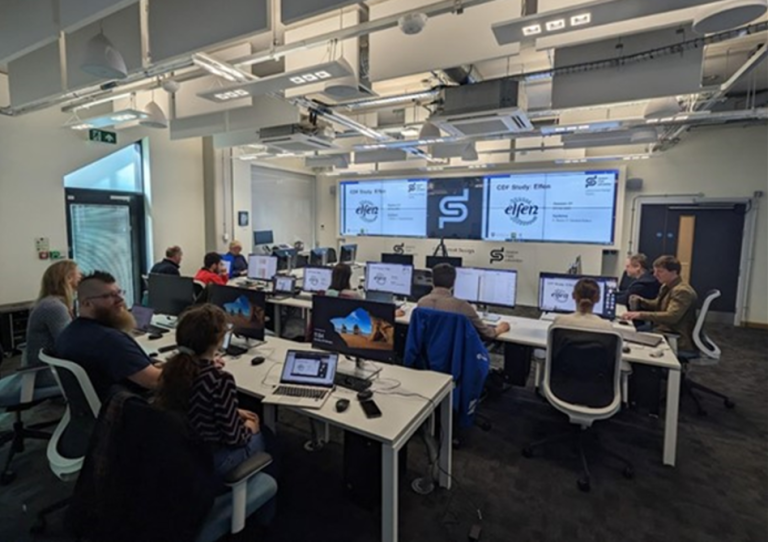Elfen: Concurrent Design Facility Study at Space Park Leicester
Pilot Study Paves the Way for Potential UKSA Grant Application in Upstream Solar Wind Heavy Ion Composition Experiment
In a recent pilot study conducted between January and March 2023 at Space Park Leicester (SPL), researchers have made significant strides towards assessing the technical feasibility of an upstream solar wind heavy ion composition experiment. The study, spearheaded by Jennifer Carter from the University of Leicester, has laid the groundwork for a UK Space Agency (UKSA) grant application under the “Space Science and Space Exploration Bilateral Programme – Category C”.
The proposed mission, named “Elfen”, which means “element” in Welsh, envisions the deployment of a 16U CubeSat to monitor heavy ions, such as C6+ or O7+, in the upstream solar wind and plasma sheet. Recognizing the potential of this groundbreaking endeavor, the University of Michigan has shown interest in collaborating by providing the T-FIPS instrument, thus forging a partnership with the University of Leicester. Notably, the mission also holds the potential to bolster existing ties with NASA in the realm of space weather.

While the pilot study has showcased the technical feasibility and promising outcomes of the Elfen mission, the team acknowledges that further funding is required to fully realize its objectives. Consequently, the researchers intend to apply for a UKSA grant under the “Space Science and Space Exploration Bilateral Programme – Category C” to secure the necessary resources for mission development.
The successful acquisition of the UKSA grant would not only propel the Elfen mission forward, but also enable the University of Michigan to pioneer advancements in high-mass ion spectrometers, further solidifying its reputation in space science. Additionally, it would facilitate the University of Leicester’s engagement with commercial CubeSat technology, opening up new avenues for research and development.
As the application process progresses, the researchers anticipate that the UKSA grant will provide the much-needed support to bring the Elfen mission closer to fruition. By harnessing the potential of CubeSat technology and fostering collaborations between institutions, they aim to propel the scientific community forward and unlock new insights into the mysteries of space.
For more information about the UKSA Bilateral Programme, visit: https://www.gov.uk/government/publications/international-bilateral-fund/guidance-international-bilateral-fund-ibf
